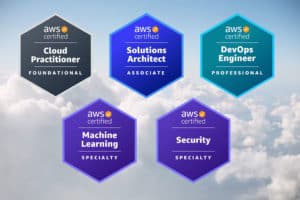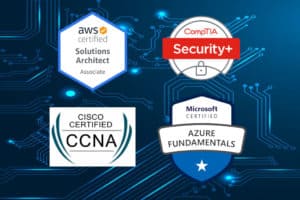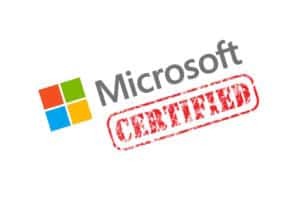Ever stood at the bottom of the career ladder, looking up and wondering how to take that first meaningful step? Yeah, us too. It’s a jungle out there, but guess what? The right project management certification can be your vine to swing forward.
In this post, you’ll discover how specific certifications aren’t just fancy titles to fluff up your resume—they’re your secret sauce for career advancement. Let’s get into it.
Quick Takeaways:
- Project management certifications boost your career, making you an attractive asset across industries with potential for higher salaries.
- Choose a certification that aligns with your career level, industry, and future aspirations for a tailored career boost.
- Dive into preparation with resources that match your learning style, and leverage your new skills and networks for career growth.
Why Should You Consider a Project Management Certification?
When it comes to ramping up your career trajectory, snagging a project management certification is akin to adding a turbo boost. Beyond the shiny new title on your resume, these certifications pack a punch in both tangible and intangible benefits. First off, they open the door to new job opportunities across a spectrum of industries, making you an attractive candidate to potential employers. They’re not just looking at your work history; they’re seeing a commitment to your profession and an eagerness to grow.
Moreover, let’s talk numbers. Certifications often lead to salary increments. It’s like giving yourself a pay raise simply by investing in your education and skills. But, it’s not just about the money. These certifications arm you with a robust skill set that includes leadership, strategic project planning, and risk management, which are invaluable across any project. The end game? You’re not just another employee; you’re a strategic asset companies vie to have.
How Do You Choose the Right Certification for Your Career Goals?
Navigating the sea of project management certifications can feel overwhelming. However, the key to choosing the right one boils down to aligning it with your career aspirations and current industry. Consider your career level; are you just starting, looking to solidify your existing experience, or aiming to jump into a senior role? Your choice of certification should mirror where you’re at and where you’re headed.
For the industry insiders, some certifications cater specifically to certain sectors. If you’re in construction, IT, or healthcare, there’s something tailored just for you. For those with a more general purview, there are options aplenty that don’t tether you to a single industry.
Here’s a quick tip: Picture where you want to be in the next five years. Are you leading large scale international projects, or are you shepherding agile teams in tech startups? This foresight can help you choose a certification that not only complements your career path but turbo-charges it.
What Are the Most Recognized Project Management Certifications Today?
In the world of project management, certain certifications stand out from the crowd, recognized and revered by industries worldwide. Here’s a rundown of the crème de la crème:
PMP® (Project Management Professional) : The PMP is the gold standard for project managers, revered and recognized globally. Ideal for those seeking to solidify their project management skills, it requires a blend of education and experience. It’s your go-to if you’re eyeing leadership roles in project management.
PRINCE2® (Projects IN Controlled Environments) : PRINCE2 is massively popular in Europe and Australia and is known for its process-based approach. It offers flexibility, making it suitable for any project type. This certification is perfect for those looking to understand the minuscule details of project management methodologies.
Certified ScrumMaster® (CSM) : Agile methodologies are the bread and butter of tech industries, and CSM puts you right in the thick of it. Ideal for those looking to lead agile teams, it equips you with the essentials of Scrum, enhancing team performance and improving workflow.
CAPM® (Certified Associate in Project Management) : For the rookies, CAPM is an excellent starter certification. It lays the groundwork for a career in project management, covering fundamental knowledge without needing extensive experience.
Here’s a little gem that’s often overlooked: Lean Six Sigma Green Belt. While not exclusively a project management certification, it focuses on improving process efficiency, reducing waste, and enhancing quality – skills that are gold dust in project-centric industries. This unique blend of project management and process improvement makes you a dual threat in the job market, a detail that you’d do well not to overlook.
Choosing the right project management certification depends on numerous factors, including your industry, career level, and where you see yourself in the future. Whether you’re just starting out or looking to cement your place in the upper echelons of project management, there’s a certification that fits your aspirations. Remember, it’s about enhancing your skill set, boosting your career prospects, and, ultimately, steering your professional journey in the direction you’ve always dreamed of.
How Can You Prepare for a Project Management Certification Exam?
When the goal is to nail that project management certification exam, the secret sauce is to tailor your study approach to fit your unique learning style. Not everyone can dive into the depths of a textbook and emerge with clarity and confidence. So, let’s explore a buffet of prep strategies designed to cater to every type of learner out there.
Figure Out Your Learning Style
First and foremost, pinpoint whether you’re a visual, auditory, kinesthetic, or reading/writing-preference learner. This insight will be your North Star, guiding you to the study resources that resonate most with you.
Select Appropriate Resources
Visual Learners : Hunt down infographics, charts, and videos. Platforms like Coursera or LinkedIn Learning are goldmines for engaging content.
Auditory Learners : Podcasts and audiobooks on project management concepts can be your best friends. Also, don’t shy away from discussing topics with peers or mentors; sometimes, a good chat is what you need to cement a concept.
Kinesthetic Learners : Hands-on workshops or simulation software offer a real-world taste of project management challenges and solutions.
Reading/Writing Learners : Official guidebooks and online forums can offer deep dives into the specifics of project management methodologies. PMI’s PMBOK® Guide is a cornerstone for many certification exams and a must-have.
Join a Study Group
Connecting with fellow aspiring project managers in study groups can not only provide moral support but also expose you to diverse perspectives and tips. Plus, explaining concepts to others is a fantastic way to solidify your understanding.
Craft a Personalized Study Plan
Map out a study schedule that aligns with your day-to-day life. Be realistic about your commitments and pace. And remember, it’s a marathon, not a sprint. Short, consistent study sessions often trump marathon cramming sessions.
Mock Exams Are Your Friend
Practice, practice, practice. Mock exams can be invaluable for familiarizing yourself with the format of the actual test and for gauging your readiness. They can also pinpoint areas that require additional study.
How to Leverage Your New Certification for Career Advancement
Congrats! You’ve climbed the mountain and snagged that coveted project management certification. Now, let’s ensure that achievement doesn’t just sit pretty on your resume but actively propels your career forward.
Update Your Professional Profiles
Kick things off by jazzing up your LinkedIn profile and resume. Highlight your new certification prominently. Employers and recruiters often search for specific certifications, so make sure yours is front and center.
Network Like a Pro
Diving into professional communities, both online and in-person, can open doors you never knew existed. Platforms like ProjectManagement.com or PMI chapters offer networking opportunities with peers and industry veterans. It’s not just what you know, but who you know.
Seek Out Mentorship or Coaching
A mentor, who’s been in the trenches, can provide guidance, insight, and even open doors to new opportunities. Don’t be afraid to reach out to seasoned project managers in your network or through professional organizations.
Showcase Your Skills
Don’t wait for opportunities to come knocking. Volunteer for high-visibility projects at work, or offer your freshly minted project management services to nonprofits or community groups. Real-world successes speak volumes.
Stay on the Learning Curve
The world of project management is ever-evolving. Continuing education and staying abreast of industry trends demonstrate your commitment to your career. Podcasts, webinars, and conferences are great for keeping your finger on the pulse.
Unique Tip: Create a ‘Project Management Success Kit’
This is where most blogs might leave off, but here’s a unique nugget just for you. Compile a ‘Project Management Success Kit’ comprising your certification study materials, a journal of lessons learned from the certification journey, templates you’ve found useful, and a list of go-to resources and contacts. This kit becomes a living document of your growth and a ready reference not just for you, but also something you can share pieces of with your mentees or peers. It’s a practical tool and a testament to your journey and expertise in project management.
By methodically preparing for your certification exam and strategically leveraging your new qualification, you’re setting the stage for substantial career growth. Remember, it’s not just about the letters after your name; it’s about the commitment to your career, the expansion of your knowledge, and the network you build. Keep pushing forward, and watch as doors begin to open.








